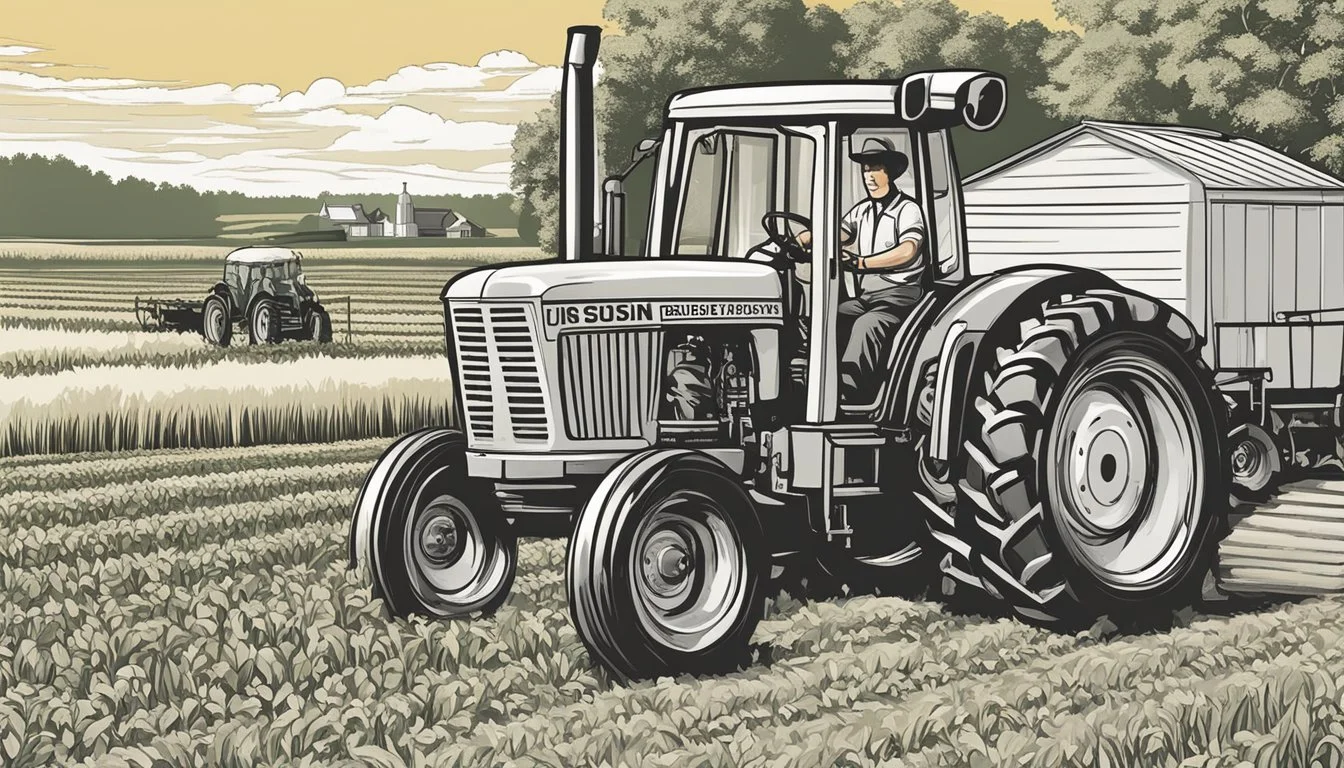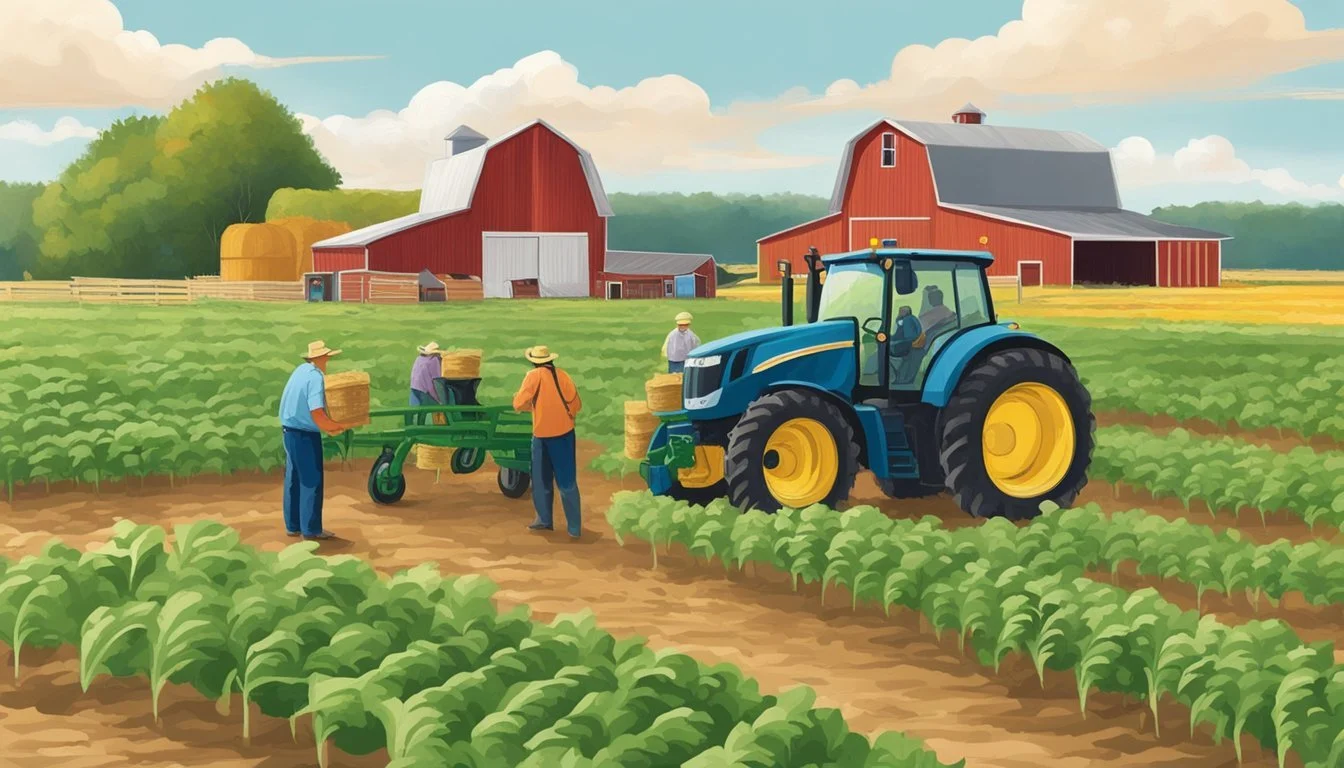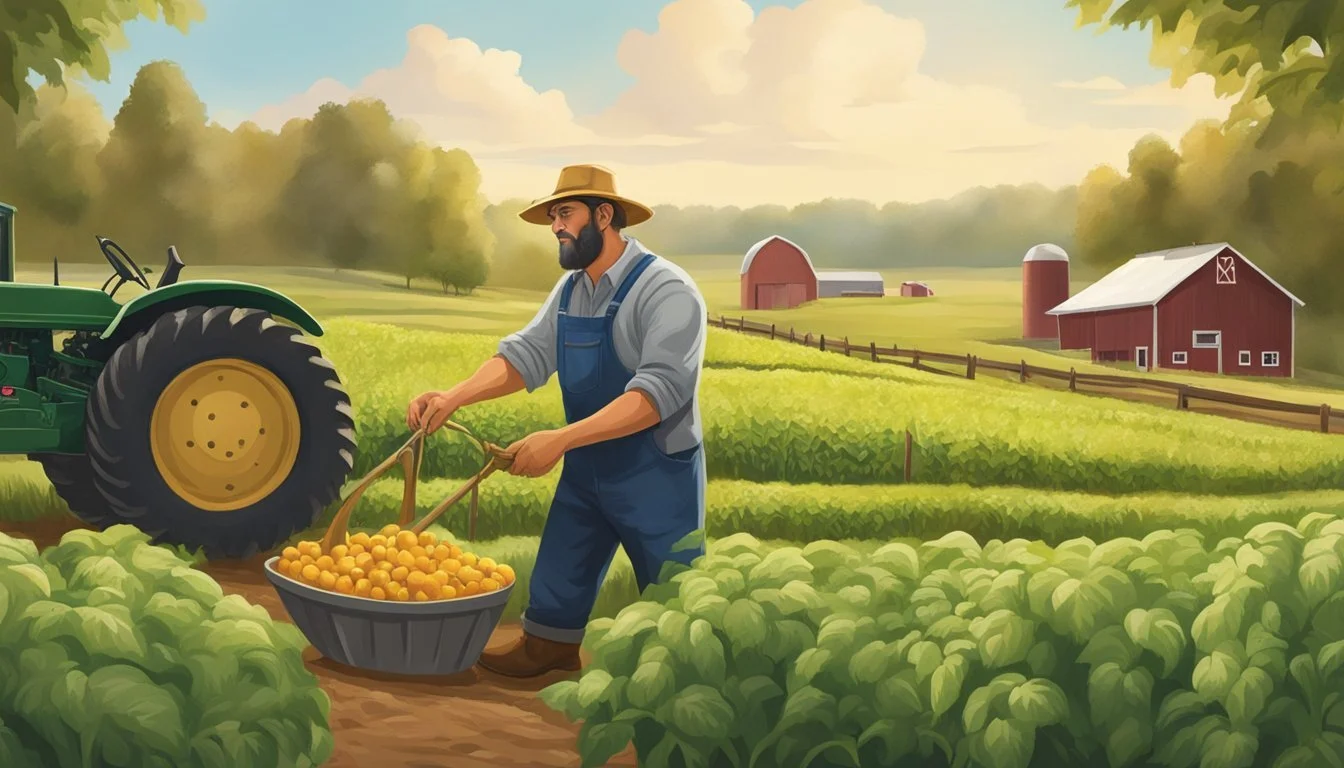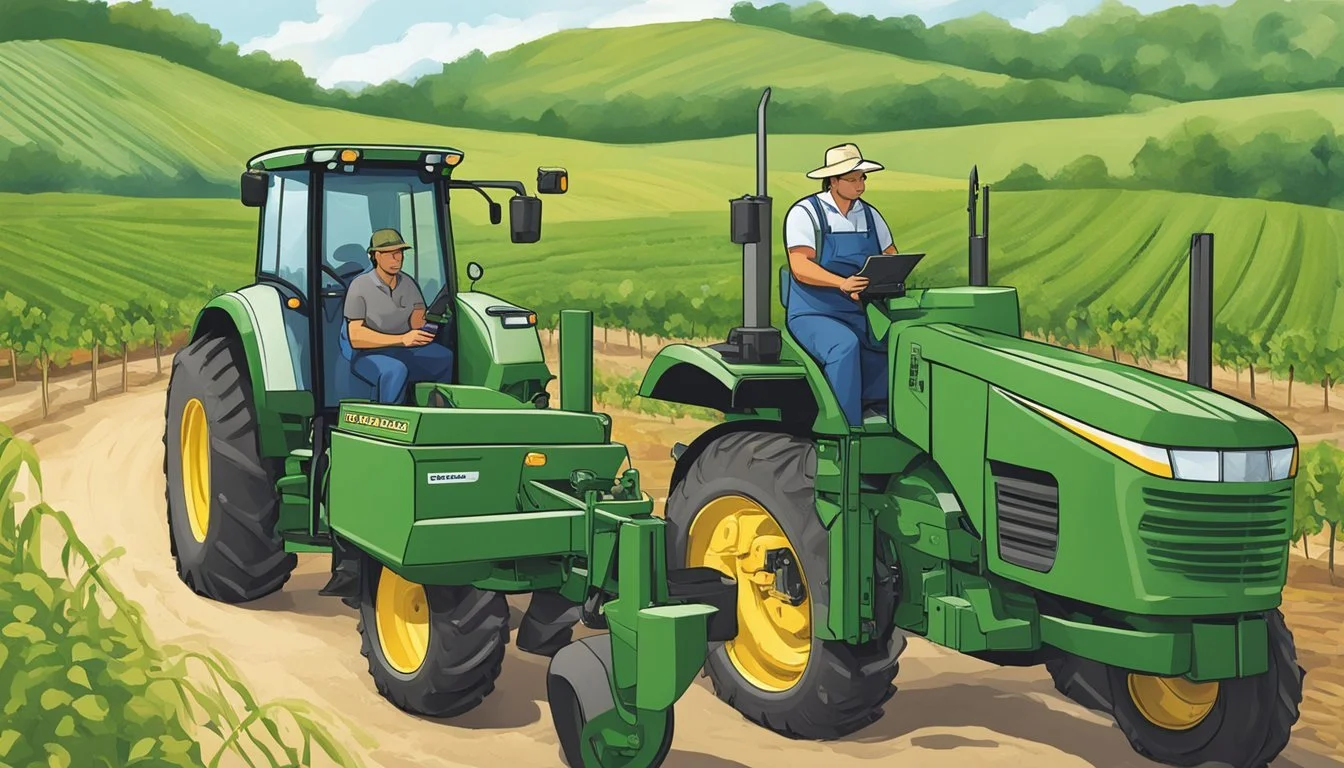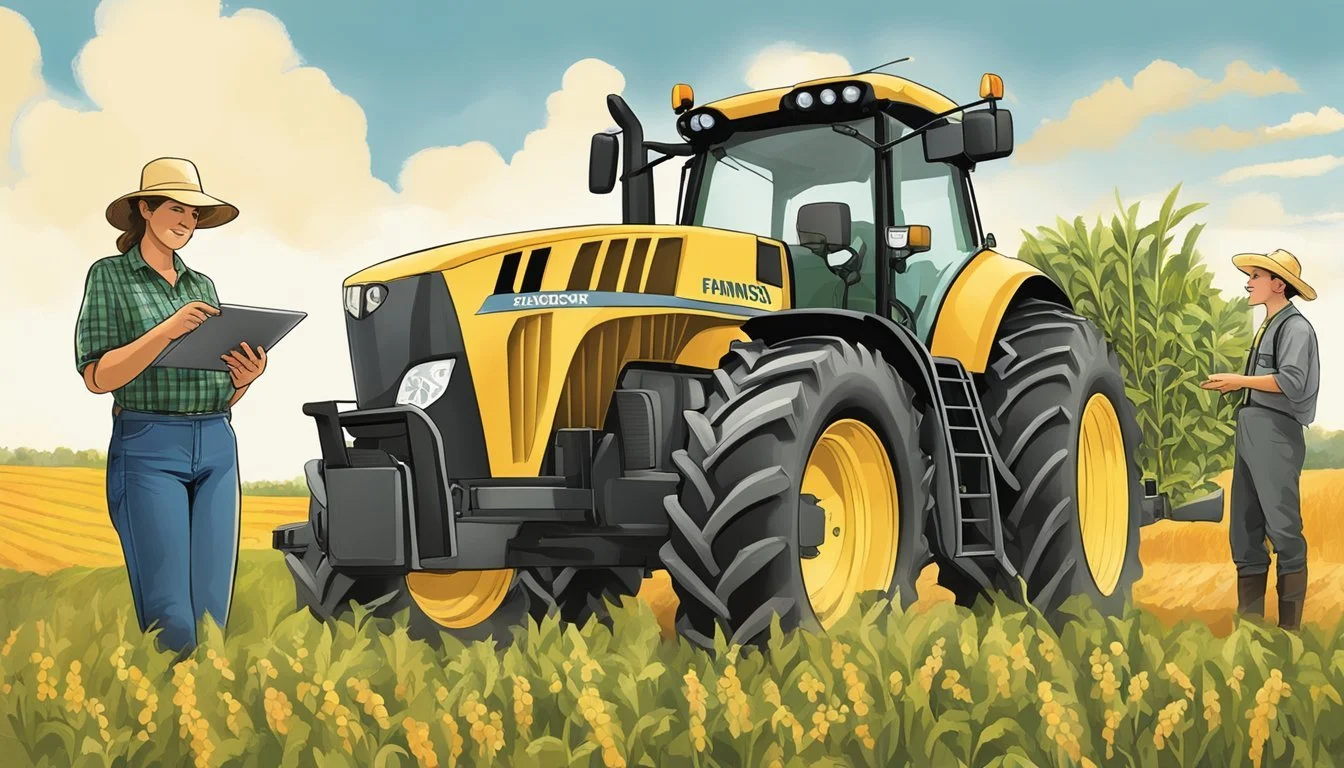Farming Grants Wisconsin
Accessing Financial Support for Agriculture
Wisconsin supports its agricultural community through various farming grants, providing financial aid and resources to sustain and improve farming practices across the state. These grants are structured to help farmers enhance production methods, explore new market opportunities, and ensure the resilience and sustainability of their operations. Whether it's through the Farm to School Grant, which links local farms with schools to provide fresh, local produce, or the Meat and Poultry Supply Chain Resiliency Grants aimed at strengthening meat and poultry processing capabilities, Wisconsin acknowledges the importance of investing in its agricultural sector.
Stakeholders in the farming community such as the Dairy Business Association, Ginseng Board of Wisconsin, and the Wisconsin Cattlemen's Association take an active role in guiding and utilizing these grant programs. Opportunities for funding also extend to specialty crops and organic certification, with programs like the Specialty Crop Block Grants and the Organic Cost Share Certification Rebate Program. These incentivize farmers to diversify and adhere to organic standards that are increasingly sought by consumers.
Additionally, in times of crisis, like the COVID-19 pandemic, the state has responded with specific initiatives like the Wisconsin Farm Support Program, which provided direct aid payments to farmers financially impacted by the pandemic. Through a combination of state-level programs and collaborative efforts with organizations such as the Wisconsin Farm Bureau Federation and Wisconsin Farmers Union, Wisconsin stands firm in its commitment to maintaining a thriving farming community.
Overview of Wisconsin Farming Grants
Wisconsin farming grants offer financial assistance to the state's agriculture sector, addressing needs from infrastructural improvements to nutrient management. These programs are crucial in bolstering the state's agricultural economy and supporting its farmers.
Wisconsin Farm Support Program
The Wisconsin Farm Support Program has provided substantial aid to local farmers, particularly during the COVID-19 pandemic. In 2020, nearly 12,000 farmers benefited from $41.6 million in payments during the program's first round. Subsequent rounds dispersed additional millions, acknowledging the economic distress experienced by farmers.
Dairy Business Association Initiatives
The Dairy Business Association endorses a variety of initiatives aimed at strengthening Wisconsin's dairy industry through state-funded grants. These grants focus on innovative dairy farming techniques, environmental sustainability, and business development.
Professional Dairy Producers Grants
Grants offered by the Professional Dairy Producers support educational programs for dairy professionals, ensuring they are well-versed in contemporary dairy production methods. These grants enhance Wisconsin's dairy quality and productivity by investing in farmer education.
Sustainable Agriculture Programs
Sustainable agriculture programs in Wisconsin receive grant funding to promote environmentally friendly farming practices. These grants support projects that improve soil health, water quality, and other natural resource concerns pivotal to long-term agricultural success in the state.
Eligibility and Application Process
Wisconsin offers a variety of grants to support the agricultural sector. The eligibility criteria and application processes for these grants are designed to ensure that the support reaches the appropriate entities, namely farmers and farms, while maintaining clear and fair guidelines.
Determining Eligibility Criteria
Eligibility for farming grants in Wisconsin typically hinges upon a few key factors. The individual or entity must be actively engaged in agricultural production within the state. For most programs, there are specific gross income requirements that must be met. Additionally, there may be prioritization for certain groups such as beginning farmers or socially-disadvantaged farmers.
Types of Eligible Entities:
Individual Farmers
Agricultural Cooperatives
Producer Groups
Gross Income Requirements: Varies by grant program.
Application Submission Guide
Applicants must adhere to a structured process when submitting their applications. All application forms must be completed accurately and submitted through the prescribed manner, often electronically via email, specialized file transfers, or platforms like Grants.gov. Some programs may require additional documentation, such as a business plan or proof of prior income.
Submission Methods:
Email
File transfer services (e.g., wibox.wi.gov/dropoff)
Grants.gov
Important to Note: Providing accurate contact information and organization details are crucial for application processing.
Key Application Periods and Deadlines
Each grant program has its application period and deadlines which are strictly enforced. It is crucial for potential applicants to mark these dates and prepare their documents well in advance. Deadlines can vary between programs and specific fiscal years.
Application Periods: Often announced annually or in alignment with specific funding cycles.
Deadlines: Typically, there are hard deadlines that vary by grant and year.
Financial Aid and Support Amidst COVID-19
In response to the challenges posed by the COVID-19 pandemic, several initiatives have been established to provide financial support to Wisconsin farmers, ensuring stability and continuity within the agricultural sector.
Wisconsin Farm Support Program and COVID-19
The Wisconsin Farm Support Program stands as a vital resource for farmers facing economic hardships brought on by the pandemic. Launched under Governor Evers' direction, the program offers a financial cushion to those in the agricultural industry who have been impacted. Eligible Wisconsin farmers faced a limited application period for these funds, typically occurring over a span of two weeks, showcasing the importance of staying abreast of such opportunities.
Direct Aid Payment Distribution
The distribution of direct aid payments through the Wisconsin Farm Support Program is structured to assist Wisconsin farmers who experienced financial losses specifically due to COVID-19. This aid is managed and administered by the Wisconsin Department of Revenue, focusing on farmers with annual gross income between $10,000 and $5 million. This targeted approach ensures that the aid reaches those within a defined income bracket, maximizing the impact of the available funds across the state's farming community.
Payment and Funding Distribution
When farmers in Wisconsin are awarded grants, the distribution of these funds is a critical step. The process is designed to be transparent and efficient, ensuring that payments are made in compliance with program guidelines.
Methods of Receiving Grant Payments
Farmers typically receive grant payments through direct deposit or checks.
Direct Deposit: Most programs prefer to transfer funds directly into the recipients' bank accounts. The benefits of direct deposit include:
Expedited fund availability
Decreased risk of lost or stolen checks
Convenience for both the granting agency and recipient
Checks: While less common due to the efficiency of electronic payments, checks remain an option. They are mailed to the recipients and require:
Manual deposit by the recipient into their bank account
More processing time both for delivery and clearance of the funds
Ensuring Proper Fund Allocation
Grant programs have measures in place to ensure that the allocated funds are used appropriately.
Reporting and Documentation: Recipients must typically provide documentation of their grant usage, such as:
Invoices
Receipts
Detailed reports on project progress or outcomes
Audits and Reviews: Programs may conduct audits or require periodic reviews to:
Confirm that funds are used in accordance with grant terms
Ensure the integrity of the funding process
Provide accountability and transparency to stakeholders
Association and Organization Support
In the landscape of Wisconsin's agriculture, several associations provide specialized support and funding opportunities. These entities focus on enhancing the farming sectors they represent, from cattlemen to corn growers, each with programs tailored to their members' needs.
Wisconsin Cattlemen’s Association Programs
The Wisconsin Cattlemen’s Association offers programs that cater to beef producers, with an emphasis on sustainable farming practices and market development. Financial aid and educational resources aim to promote the beef industry within the state, ensuring that cattlemen have access to necessary tools and information.
Wisconsin Corn Growers Association Resources
Wisconsin Corn Growers Association provides its members with resources to boost production and marketability. They offer access to research funding, which serves to improve corn yield and sustainability. Networking opportunities through the association can lead to partnerships and grants that aid in expanding the scope of Wisconsin's corn production.
Wisconsin Soybean Association Funding
The Wisconsin Soybean Association stands as an advocate for soybean growers, providing funding avenues for research and innovation. Its focus extends to policy-making initiatives that secure advantageous ground for Wisconsin soybean farmers in both the domestic and global markets.
Grants for Research and Education
In Wisconsin, various grant programs focus on enhancing sustainable agriculture through dedicated research and education initiatives. Key opportunities include USDA-affiliated programs and local education grants aimed at bolstering hands-on learning and practical research.
USDA Research Initiatives
The USDA offers Research and Education Grants that are pivotal in advancing sustainable agriculture practices. Eligible parties are often called to submit preproposals in February with final applications due in April. These grants support projects that delve into environmentally sound, economically viable, and socially responsible food and fiber systems.
Research Focus Areas:
Soil and water management
Commercial nitrogen optimization
Sustainable farming practices
Education Grants and Resources
Education grants are available to encourage knowledge-sharing and the application of sustainable practices on the ground. The Producer-Led Watershed Protection Grants and the Nutrient Management Farmer Education Grants are examples that facilitate farmer education on optimizing resource management.
Grant Details:
Farmer-Rancher Grants: Individual farms can apply for grants up to $15,000 to experiment with sustainable solutions, while groups of two or more farms may be eligible for up to $30,000 for collaborative projects.
Educational Outreach: Programs often include workshops, seminars, and hands-on training sessions designed to enhance farmers' expertise in sustainable methodologies.
Assistance with Application Logistics
Navigating the intricacies of grant applications requires understanding their logistical aspects. Precision in application preparation and managing financial processes are critical for farmers seeking grants in Wisconsin.
Aid in Application Formatting and Printing
When preparing applications for farming grants, applicants must adhere to specific formatting guidelines provided by the granting agency. During the application period, resources are often available to assist applicants with these requirements. Assistance services may include:
Guidance on the necessary documents and forms
Help with formatting applications to meet the standard criteria
Access to printers and related facilities for creating hard copies of applications if required
Applicants should ensure their applications are legible, correctly formatted, and printed without errors to avoid disqualification.
Handling Direct Deposits and Banking Queries
The financial aspect of receiving grants is streamlined through direct deposit. Applicants must provide accurate banking details to facilitate the secure transfer of funds. Assistance aspects for banking queries may include:
Support in setting up direct deposits for grant disbursements
Clarification of banking requirements and grant payment schedules
Farmers should closely liaise with their banks to resolve any issues that may arise during the direct deposit process. This ensures a smooth financial transaction that is essential for the success of their agricultural projects.
Calls for Proposals and Future Opportunities
In Wisconsin, the agricultural sector is bolstered by a variety of grant opportunities that encourage sustainable farming practices and development. Calls for proposals are routine events offering financial support for innovation and growth.
Understanding Call for Proposals
A Call for Proposals is a formal invitation extended by organizations, such as the Sustainable Agriculture Research and Education (SARE) program in the North Central Region, for applicants to submit project ideas. These calls typically outline the grant's objectives, eligibility criteria, and submission deadlines. For Wisconsin farmers, understanding the intricacies of these calls is crucial, as they offer a structured pathway to gaining financial assistance.
Key Dates:
Farmer-Rancher Grants: submissions due in early December.
Professional Development Program Grants: preproposals due in April.
Graduate Student Grants: submissions due in April.
Funding available:
Individual farms: up to $15,000.
Groups of farms: up to $30,000.
Identifying New Grant Opportunities
Staying informed about new grant opportunities is vital for farmers looking to expand or enhance their operations. Organizations such as the Wisconsin Department of Agriculture, Trade and Consumer Protection (DATCP) frequently update their lists of available grants. Farmers should regularly check DATCP's website for new funding prospects, including the Wisconsin Local Food Purchase Assistance Program and the Meat and Poultry Supply Chain Resiliency Grants. Each new announcement provides a chance for innovation and growth.
Meat Processor Infrastructure Grant
Applicants can also look towards the USDA and other federal agencies for a consistent stream of grant offerings that address broader agricultural interests at a national level. These grants often support a wide range of projects from local food systems to export expansion, reflecting the dynamic needs of modern farming. It is advisable for farmers to subscribe to mailing lists and periodically consult with grant coordinators to remain apprised of such opportunities.
Additional Resources and Contact Information
In the realm of agriculture, Wisconsin offers a plethora of grants designed to strengthen the state's farming economy. Farmers seeking help can explore several avenues for assistance and contact various departments to navigate the opportunities efficiently.
Finding Further Help and Advice
Farmers and stakeholders in Wisconsin can find additional help and guidance on available grants and funding opportunities through the following resources:
Wisconsin Department of Agriculture, Trade and Consumer Protection (DATCP)
For the latest information on grants such as Clean Sweep Grants, Farmland Preservation Planning Grants, and others:
Website: DATCP Grants and Funding
Phone: (608) 224-5012
Email: DATCPGrants@wisconsin.gov
University of Wisconsin-Extension
Offers educational resources and local assistance for nutrient management and other sustainable practices.
Website: UW-Extension
Phone: (608) 263-7883
Email: info@ces.uwex.edu
Wisconsin Farm Bureau Federation
Provides advocacy and educational support for farmers looking for grant opportunities.
Website: Wisconsin Farm Bureau
Phone: (608) 836-5575
Wisconsin Farmers Union
A resource for farm policy advocacy and education on grant applications.
Website: Wisconsin Farmers Union
Phone: (715) 723-5561
Contacting Relevant Departments and Organizations
When seeking funding, it is vital that farmers reach out to the respective departments and organizations to ensure they have the most accurate and up-to-date information.
Wisconsin Department of Natural Resources (DNR)
Manages grants related to land conservation, water management, and recreation.
Website: Wisconsin DNR
Phone: 1-888-936-7463
Wisconsin Department of Revenue
Provides information on tax credits and exemptions that can benefit agricultural operations.
Website: Wisconsin Department of Revenue
Phone: (608) 266-2772
Engagement with local offices, including the USDA Service Centers and the Farm Service Agency, is essential to gain tailored advice related to individual farming needs. The cooperation of these entities ensures that farmers in Wisconsin have access to comprehensive support networks and up-to-date information to maximize their success in grant application and funds utilization.



